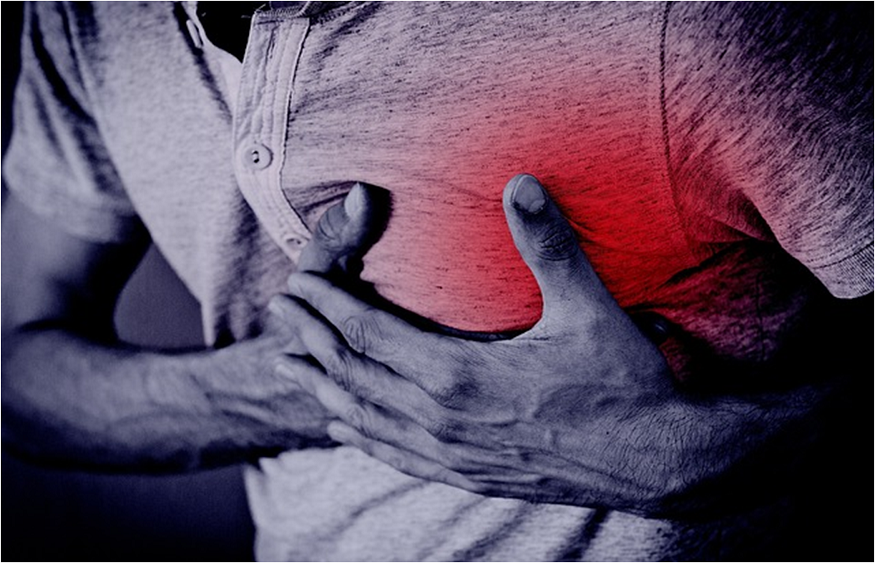Cardiomegaly Unveiled: Understanding Enlarged Hearts

Did you know that over 2.5 million people are diagnosed with cardiomegaly every year? Cardiomegaly doesn’t always come knocking with obvious symptoms. This begs the question—how can we detect and address cardiomegaly before it’s too late? Are there subtle signs we should be watching out for?
In this blog, we’ll delve deep into the intricacies of cardiomegaly, exploring cardiomegaly causes, its close association with high blood pressure, and the various cardiomegaly treatment options available.
Understanding Cardiomegaly
Cardiomegaly refers to an abnormal increase in the size of the heart. This enlargement affects the heart’s ability to function efficiently and can compromise the pumping mechanism.
Cardiomegaly has two main types: concentric hypertrophy and eccentric hypertrophy. In concentric hypertrophy, the heart muscle thickens, resulting in reduced chamber size. On the other hand, eccentric hypertrophy involves chamber enlargement caused by stretching of the heart walls.
Cardiomegaly Causes
There are two types of cardiomegaly causes: primary and secondary causes. Primary causes are often associated with genetic predisposition and inherited conditions that impact both structure and function of the heart.
In contrast, secondary causes arise from various underlying health conditions that place excessive strain on the heart. Notable examples of these conditions include hypertension (high blood pressure), heart valve diseases, and cardiomyopathy.
High Blood Pressure (Hypertension) and Cardiomegaly
Hypertension, also known as high blood pressure, is a significant contributor to cardiomegaly. It puts extra strain on the heart as it works harder to pump blood against increased resistance in the arteries.
Over time, this continuous pressure can result in the thickening of the heart muscles and subsequent enlargement. As the heart grows larger, its ability to pump blood decreases, leading to heart failure.
Other Factors Contributing to Cardiomegaly
Hypertension serves as a major factor behind cardiomegaly. However, it’s not the sole contributor to cardiomegaly. Heart valve disorders, such as aortic stenosis or mitral regurgitation, also play a role in this condition. These disorders disrupt the normal blood flow through the heart, forcing it to pump harder for compensation.
Additionally, cardiomyopathy, characterised by weakened heart muscles, can result in an enlarged heart too. Furthermore, lifestyle factors like obesity, smoking, and excessive alcohol consumption also play a role in the enlargement of the heart.
Recognizing the Signs and Symptoms
Identifying cardiomegaly in its early stages can have a significant impact on its management and outcome. Common symptoms that may indicate the presence of cardiomegaly include shortness of breath, chest pain, fatigue, and swelling in the legs and ankles.
It is important to note that symptoms can vary depending on the underlying cause of this condition. Given the potential severity it carries, regular health check-ups and screenings are crucial for early detection.
Diagnosis and Medical Evaluation
In the diagnostic process of cardiomegaly, a comprehensive medical evaluation is necessary. Physicians conduct physical examinations, review medical histories, and perform various tests to confirm this condition.
Moreover, doctors can assess the size and functioning of the heart through imaging techniques like X-rays and echocardiograms. Electrocardiograms (ECGs) are also utilised to evaluate the heart’s electrical activity.
Cardiomegaly Treatment
The approach to the cardiomegaly treatment depends on the underlying cause and the severity of the condition. Managing cardiomegaly requires making important lifestyle changes.
Adhering to a heart-healthy diet, engaging in regular exercise, and maintaining a healthy weight can have a significant positive impact on heart health. In addition, medications like ACE inhibitors, beta-blockers, and diuretics are commonly prescribed to help control blood pressure and alleviate strain on the heart.
When lifestyle changes and medications prove inadequate, surgical interventions may become necessary. Surgical procedures like valve repair or replacement can address abnormalities in heart valves, thus alleviating strain on the heart. Additionally, implantable devices such as pacemakers and defibrillators help regulate heart rhythm and prevent potential complications.
Prevention and Prognosis
Preventing cardiomegaly relies on key measures. A crucial aspect involves effectively managing conditions like hypertension, diabetes, and high cholesterol. By adopting a heart-healthy lifestyle and diligently following medical advice, individuals can significantly decrease the risk of heart enlargement or developing cardiomegaly.
The prognosis of cardiomegaly varies depending on several factors like the underlying cause, the stage of detection, and the effectiveness of treatment. Early identification and intervention can enhance outcomes and quality of life.
Hence, do not overlook symptoms or disregard medical advice as this may contribute to disease progression and related complications.
Conclusion
Cardiomegaly is a profound reminder of the complexities of the human heart and the crucial role it plays in our overall well-being. It underscores the importance of maintaining its optimal functioning. As we’ve explored the various factors contributing to this condition, we’re reminded that our hearts, resilient yet delicate, warrant our utmost care.
Now, we can approach heart health with newfound awareness, recognizing the potential risks and taking proactive steps to protect our most vital organ.
If you think you might be at risk of cardiomegaly, visit a reputed super-speciality hospital immediately!





